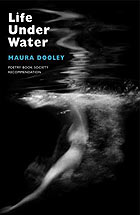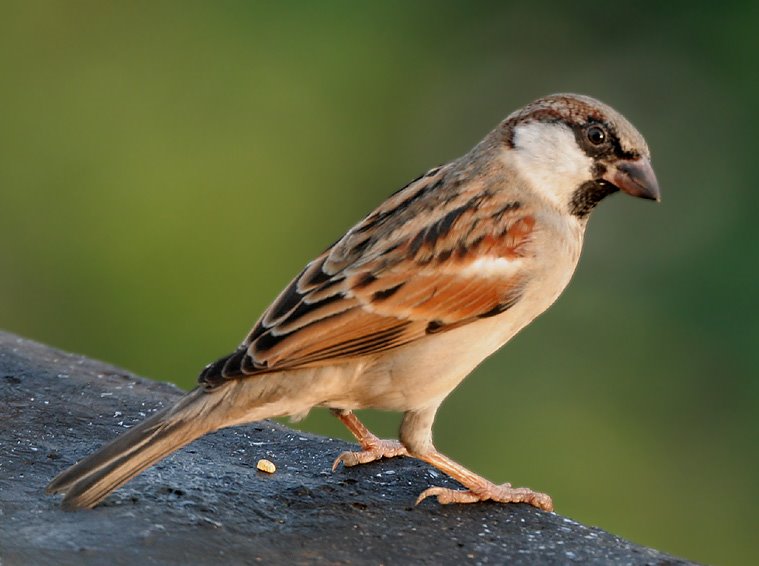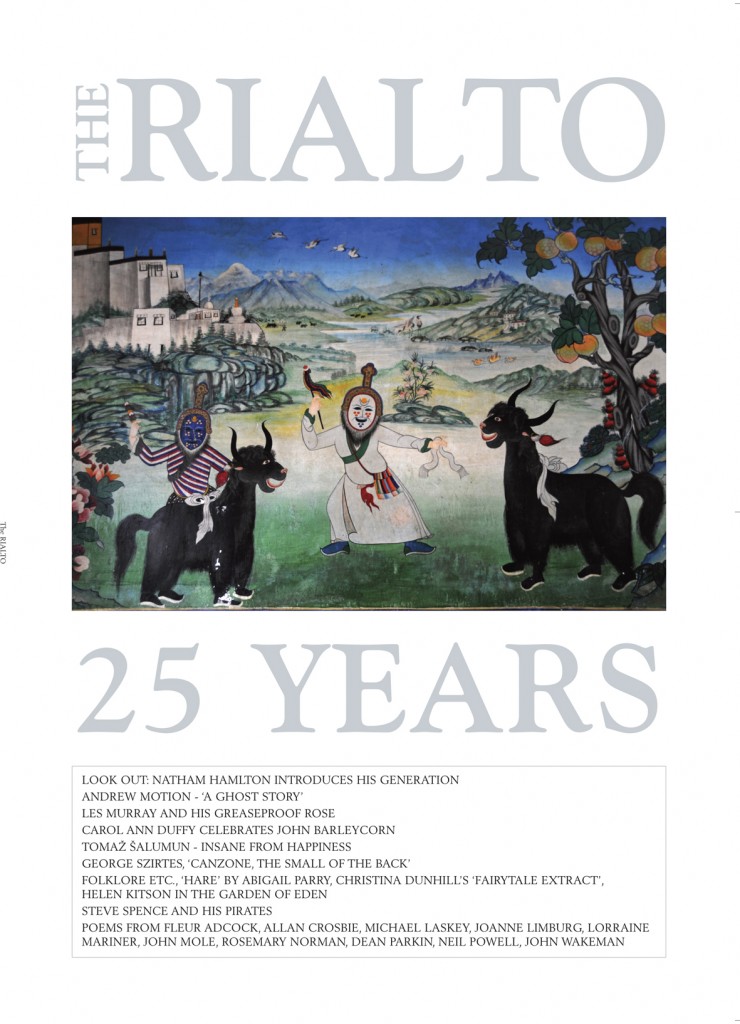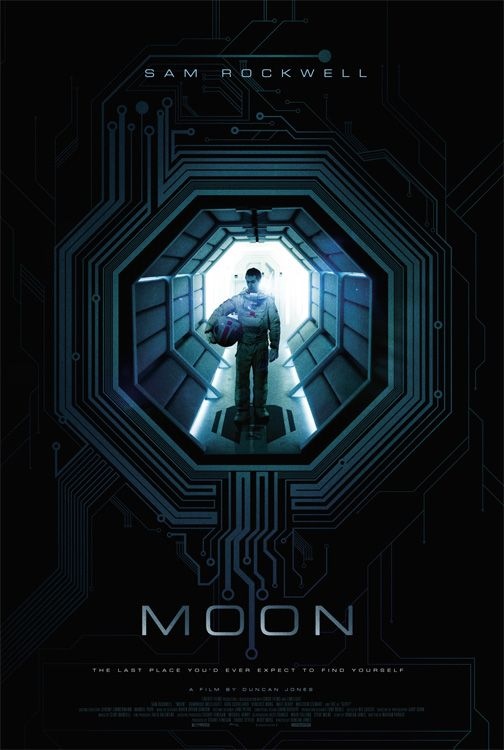Despite the title, it's not often that I overtly discuss Derrida and deconstructive thought on this blog, but as I've been working on a critical perspective of Patrick McGuinness' excellent poetry (particularly
The Canals of Mars, a first collection which inexplicably missed the shortlist for the Forward Prize), I was pleasantly reminded of my undergraduate studies on poststructuralist thought and theory. So, forgive me if it's your idea of the epitome of tedium and/or you've heard it all before, but I've reproduced a short piece I wrote a while back below, exploring the notion of the trace and presence & absence in Don Paterson's textless poem, ' On Going to Meet a Zen Master in the Kyushu Mountains and Not Finding Him'. Any thoughts welcome.
~
Nothing and Everything: ‘The Trace’ in Don Paterson’s ‘On Going to Meet a Zen Master in the Kyushu Mountains and Not Finding Him’As a deconstructive concept, the
trace is necessarily related to what Derrida coins
différance: the constant play of each element of language within a system referring to other elements; calling forth differences between concepts and deferring any meaning a concept might be assumed to possess. In relation to the
trace, then, this takes the form of the differences between, and echo of, each spoken or written sign within every other sign. Consequently, any concrete meaning that a sign might naively be thought to capture is permanently deferred, since each signifier constantly calls forth further signifiers in bearing the traces of them. Nothing within the linguistic system, then, is ever merely present or absent, as the presence and absence of concepts and meaning play out their differences, or, as Derrida states, ‘there are only, everywhere, differences and traces of traces.’
In relation to Don Paterson’s poem, ‘On Going to Meet a Zen Master…’, the concept of the play between traces is particularly relevant. First, the textlessness of the main body of the poem turns the traditional prevalence of presence over absence on its head, as the poem seems to speak entirely from ‘the Other’: the traces of signs which would traditionally lie behind the present signs (within a text poem) seeming to hold the dominant voice. However, it is important to note that the poem does not completely invert this presence/absence hierarchy, nor could it: for one thing, the presence of a title causes the reader to construct the poem him/herself from the play and difference between the traces within it, and even if the poem were titleless, presence would emerge from its absence. Consider looking at a blank piece of paper, for example: its whiteness calls forth purity, perhaps the image of snow, or maybe absolute silence, but whatever you construe it to mean (and surely you must), some presence is borne out of its absence, and further traces come to bear on these; presence necessarily proliferating from absence. In occupying a presence, then, the ‘otherness’ of absence inevitably becomes the selfsame, and absence and presence are revealed to be necessarily tied-up in one another. This is the very essence of the
trace at work.
Turning back to the poem as it stands, then, (textless but bearing its title), the potential play of differences and traces within it are seemingly infinite. What is the reader to make of the emptiness of the page? At first glance it may call forth the solitude of the narrator and surrounding mountains, or perhaps his silent contemplation at having not found the Zen Master. The pure silence conjured by the space where we expect the text to be, in turn, may even call to mind a pure Buddhist or Zen meditation. Furthermore, what are we to make of the narrator ‘Not Finding Him’? Initially, this would seem to be the narrator failing to locate the Zen Master in physical terms, but given that the search for him may be part of a spiritual or quasi-religious quest, the narrator may have been unable to ‘find him’ in a spiritually fulfilling sense; failing to comprehend the advice he perhaps sought from the Master. On a general level (returning to the idea of the poem speaking from ‘the Other’), the textlessness may also hint at the impossibility of writing a Western poem that could sufficiently deal with ‘the Otherness’ of the East. This is echoed in the traces of the written sign of the ‘Kyushu Mountains’ : initially signifying the physical concept of the mountains themselves, but simultaneously alluding to an area that is often considered to be the birthplace of Japanese civilisation. Indeed, ‘On Going’ itself seems to bear the trace of such a continual, and in this case futile, operation.
And these examples, it must be remembered, are just a handful of considerations. Any individual reader approaching this poem could potentially come to create an infinitely long poem from the traces which play out not only in its title, but also in the very absence of its text. In short, in containing nothing, Paterson’s poem contains everything. But all this is not to say that the concept of the
trace allows for a text to mean whatever anyone might want it to mean. If anything, the inverse is true: in allowing ‘the Other’ within a text to speak, the critical analysis of the trace must listen to that which speaks before an act of reading begins; surely a difficult task. Nor is such a textless poem (as may seem the case) unique in this seemingly paradoxical potentiality. For in every single poem, in every piece of literature; in short, in every single instance of spoken or written discourse, différance and the play of traces are at work. Though I believe I have a firm understanding of the sentence I have previously constructed (and you may feel, as a reader, the same in your reading of it), it is nonetheless inherently unstable in its meaning and conceptuality, and as open to the constant fluctuations of meaning as those observed in Paterson’s poem. Everywhere, and as seen, in a seeming ‘nowhere’ or ‘nothingness’, there are only ever differences at play, and traces of traces proliferating ad infinitum.
Ben Wilkinson, 2006For those interested in properly exploring deconstruction and its ramifications beyond my own half-baked thoughts, there are numerous texts worth looking at. Bennett and Royle's
Introduction to Literature, Criticism and Theory is a good introductory volume, and more specifically, Martin McQuillan
Deconstruction: A Reader and Jonathan Culler's
On Deconstruction are both excellent. Where Derrida is concerned, the best of his ideas and his own most lucid explanation of deconstruction (which, given his propensity towards linguistic play, deception and deferral isn't always easy to follow) is contained within
Of Grammatology. Paradoxically, it's perhaps best to approach the McQuillan or Culler before Derrida's work itself.
























